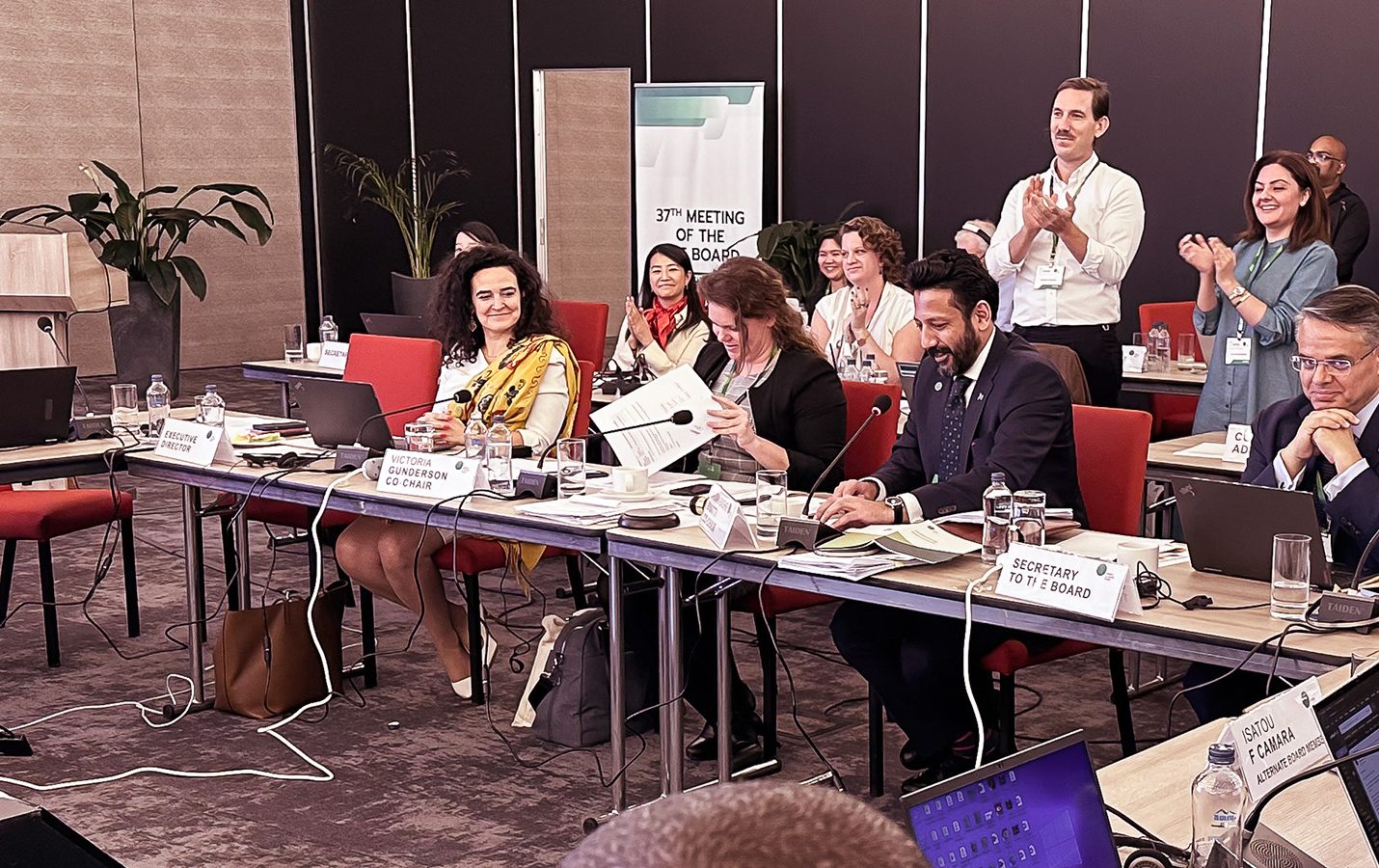
C3S: July 22 hottest day in recent history
July 22 was the hottest day on earth in recent history, according to the Copernicus ...

The Board of the Green Climate Fund (GCF) approved 15 proposals totaling $ 736.4 million to fund new climate projects in developing countries. A total of $ 3.6 billion when co-financing is included.
Concluding its thirty-seventh meeting in Tbilisi, the last Board meeting of the year brings GCF programming in 2023 to $ 2.1 billion of GCF resources and a total of $ 9.0 billion when co-financing is included.
The Board meeting marked the last one of GCF’s first replenishment period (2020-2023) having programmed a total of $ 8.5 billion of its resources, with a total value of $ 34.0 billion including co-financing during these three years.
GCF’s overall portfolio now stands at $ 13.5 billion in GCF funding, with a total value including co-financing of $ 51.8 billion, covering 243 projects across the developing world.
Co-chair, Nauman Bashir Bhatti said: “I am delighted that all 15 proposals submitted for our scrutiny were approved – further demonstrating our steadfast commitment to vulnerable countries across the world.”
Co-chair, Victoria Gunderson said: “Today the Green Climate Fund’s portfolio grew to over $ 51 billion with a total of 243 projects and the board approved key policies to improve climate finance access for developing countries. This places climate action front and centre transforming the lives of people living on the frontlines of a rapidly heating planet.”
Executive Director, Mafalda Duarte said: “I am very pleased that the Board has approved over $ 736 million in new investment to support communities most vulnerable to the climate crisis. This decision paves the way for important partnerships with new Accredited Entities from developing countries, some of which have not yet received climate finance. Importantly, these partnerships will drive climate action from local organizations already embedded within the communities they serve. I am also heartened that the Board supports my 50by30 vision for a more efficient and impactful GCF. To that end, we are already taking steps through the new Readiness Program Strategy and a pause on re-accreditation.”
Of the 15 new funding proposals, 12 target the most vulnerable – Least Developed Countries (LDCs), Small Island Developing States (SIDS) and African States. Eight proposals are for adaptation, one is for mitigation and eight are fully cross-cutting projects.
Project agreements were signed for six of the projects immediately after their approval, reflecting the urgency by GCF and its partners to deliver on the ground.
The GCF Board also approved the accreditation of three new organizations, two of which are Direct Access Entities: SK Securities based in the Republic of Korea, Federated States of Micronesia Development Bank (FSMDB) based in Micronesia and CARICOM Development Fund (CDF) based in Barbados.
Six organisations were re-accredited – the Foreign Environmental Cooperation Center of the Ministry of Ecology and Environment of China (FECO); Micronesia Conservation Trust (MCT); Food and Agriculture Organization of the United Nations (FAO); Deutsche Gesellschaft für Internationale Zusammenarbeit (GIZ) GmbH; International Fund for Agricultural Development (IFAD); and MUFG Bank (part of Mitsubishi UFJ Financial Group, Inc). This brings the total number of Accredited Entities to 121, including 77 regional or national Direct Access Entities.
The Board adopted the revised strategy of the Readiness and Preparatory Support Program 2024-2027 dedicating $ 500 million for capacity building of partners, recommendations to enhance the Project Preparation Facility (PPF), and were presented with an update on GCF’s second replenishment process.
The revised strategy of the Readiness and Preparatory Support Program responds to emerging climate priorities and needs of developing countries. It aligns with GCF’s recently revised strategic plan and aims to strengthen impact, efficiency, and effectiveness.
July 22 was the hottest day on earth in recent history, according to the Copernicus ...
Google has engaged in partnership with DHL to utilize the DHL Express GoGreen Plus service ...
Mars has announced registering a record 8% greenhouse gas (GHG) emissions reduction against its 2015 ...


اترك تعليقا